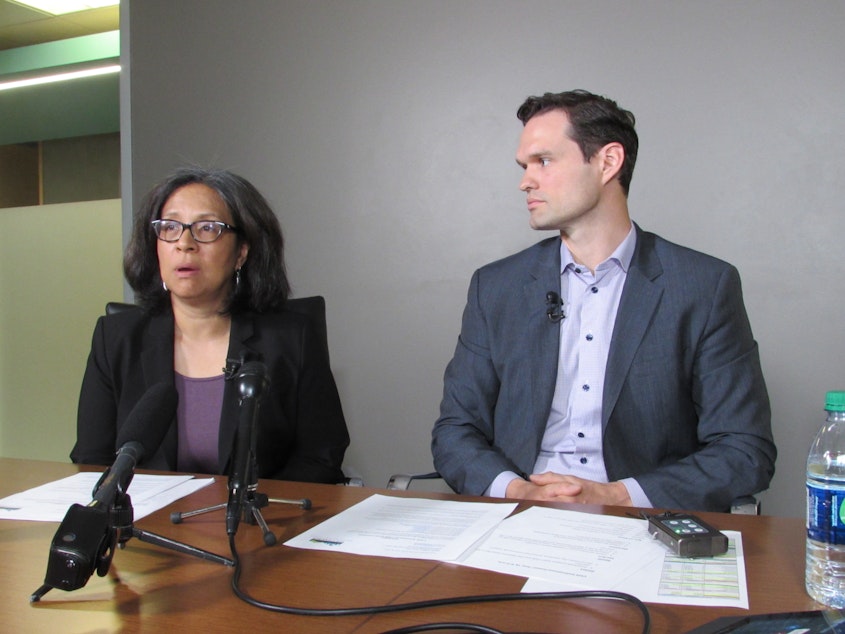Seattle Chamber aims to focus election on a business-leaning City Council

Seattle’s business leaders call this year a “change” election for the Seattle City Council, and they’re ready to jump into the fray. They say they’ll work to elect candidates that will be more receptive to working with businesses than the current council has been.
Tuesday the Seattle Metropolitan Chamber of Commerce’s political action committee endorsed nine candidates for the seven city council districts. They include Phil Tavel in District 1; Mark Solomon in District 2; Egan Orion in District 3; Alex Pedersen in District 4; Debora Juarez in District 5; Jay Fathi and Heidi Wills in District 6; and Michael George and Jim Pugel in District 7. All of those candidates submitted a questionnaire and attended interviews with Chamber members from their district.
Markham McIntyre is the executive director for the Civic Alliance for a Sound Economy or “CASE,” the Chamber's political action committee, which he said has raised $888,000 so far. Amazon is the biggest corporate donor. McIntyre said business leaders felt their concerns went unheard when the council passed the so-called “head tax” last year to fund homeless services. “We were invited to sit at that table but knowing full well [the Council] had decided what exactly they were going to do, and just wanted us to rubber stamp it,” he said. “And in our minds that’s not really partnership.”
He said they’re seeking to help candidates who know the businesses in their district and have relationships with them. “On some of those issues that affect all of us in the community, I think we’d like to see a different set of solutions, not just the same rhetoric, not just the same policy ideas, but some creative thinking that’s bringing in unlikely partners to really work on homelessness, housing and transportation,” he said. McIntyre said at this point, businesses would qualify as “unlikely partners” to the council.
He said CASE will start making independent expenditures “soon” to benefit their endorsed candidates in the six weeks leading up to the primary, August 6th. Chamber president Marilyn Strickland noted that Debora Juarez is the only current council member to receive their endorsement. “We aren’t looking for ideological purity,” Strickland said. “We don’t agree with her all the time, but we think she’s been consistent about responding to her neighborhood and she’s willing to sit down and have a constructive conversation, I think that’s really important.”
Some voters responded saying they'll use the Chamber’s endorsements as a guide who NOT to vote for. Strickland said she realizes the Chamber’s endorsement can be a plus or a minus depending on the voter. “You know, I think it depends on who you ask,” she said. “But I think that given that this is a change election, it’s not even necessarily about being pro-business, it’s about being pro-Seattle and pro-neighborhood.”
Sponsored
Markham said electability was a consideration in the endorsement process, but one that was hard to assess given the crowded field of candidates and the novelty of democracy vouchers. “Usually fundraising is one of those key markers for how well candidates are doing,” he said, “and I think we've yet to see how [the use of vouchers] plays out in terms of its accuracy in predicting the poll positions for those candidates.”
Strickland said beyond the list of endorsements, it’s “still a pretty wide-open process.” The amount that CASE ultimately spends on behalf of each candidate “will depend on who is on the ground knocking on doors, what we see them doing with fundraising,” she said. Strickland said voters are starting to get engaged, “but I think when ballots drop is when things start to get hot.”




